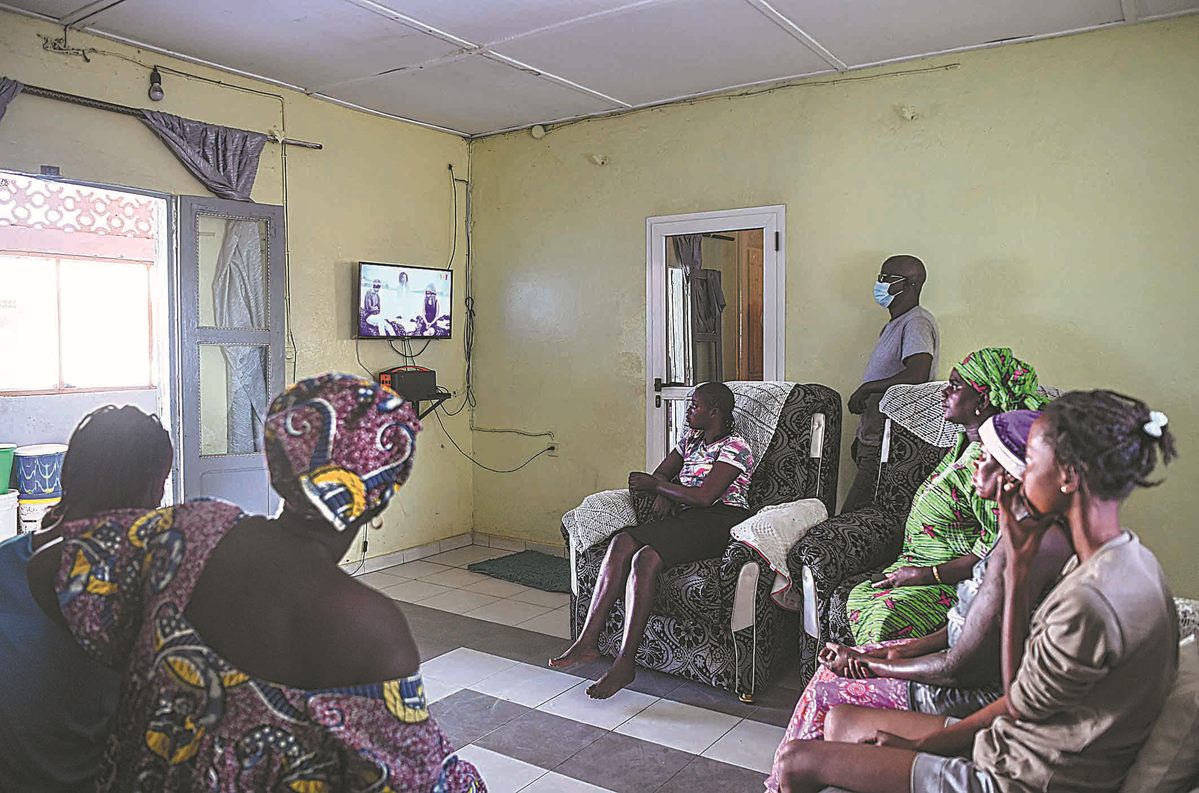BRI projects light up Africa's prospects


Joint program
According to a white paper on China-Africa cooperation released by China's State Council Information Office in November, more than 1,100 China-Africa joint programs have continued and nearly 100,000 Chinese technicians and workers have remained at their posts in Africa throughout the pandemic.
One such project that has been progressing steadily is the Nairobi Expressway in the Kenyan capital. Costing $600 million, the roadway will reach 27 kilometers with four lanes. It will connect the Jomo Kenyatta International Airport with the western part of the city via Nairobi's central business district.
Work began in June 2020 on what will become the first toll road in the East African country.
The Kenya National Highways Authority said more than 75 percent of the work has been carried out, and the expressway is due to open in June.
Paul Maringa, the principal secretary for infrastructure, said the project implementers had to be extremely well organized to ensure that work schedules were maintained despite the obstacles posed by the pandemic.
"We broke down the work teams into smaller work teams and that basically removes congestion in any work area," Maringa said.
"We also chose to adopt the principle of working 24 hours. That meant we worked during the day and the night. That way we got in more working time because the night is not a constraint for us."
More than 4,000 Kenyans have been employed for the project, which is financed by the China Road and Bridge Corporation under the business model of build-operate-transfer.
Another high-profile project in the country is Lamu Port, part of an ambitious transport corridor linking the country with South Sudan and Ethiopia.
The first three berths at the site were commissioned in June 2021. The China Communications Construction Co, the contractor for the project, got work underway in October 2016.
Aside from the port, other vital infrastructure-including roads, airports, a railway, a dam and even cities-will be built under a grand project called the Lamu Port-South Sudan-Ethiopia Transport Corridor. The megaproject has a price tag of more than $29 billion.
For Lamu Port, more than 1,500 people have so far been hired at the site, according to Africa Policy Institute.
In Senegal, the construction of the Foundiougne Bridge, the longest bridge in West Africa, has likewise proceeded despite the pandemic. The 1,300-meter bridge is being constructed by China Great Wall Industry Corporation and China Henan International Corporation Group. The bridge will serve as a shortcut to Gambia and the Casamance region of Senegal.
In North Africa, Egypt's new administrative capital-taking shape 45 kilometers east of Cairo-is another key BRI project that has proceeded despite the pandemic.
Covering 700 square kilometers, the new city is expected to accommodate 6.5 million people as well as the nation's parliament, government agencies, embassies, and ministries.
Chinese banks provided most of the financing for the new city that is expected to decongest the current capital Cairo.
In broad terms, the pace of work under BRI projects in Africa slowed down in the first quarter of 2021. But Chinese financing and investment activities picked up again in the second quarter with an increase from the previous quarter of 36.9 percent, according to Green Finance and Development Center, a think tank focused on sustainable finance and energy.























